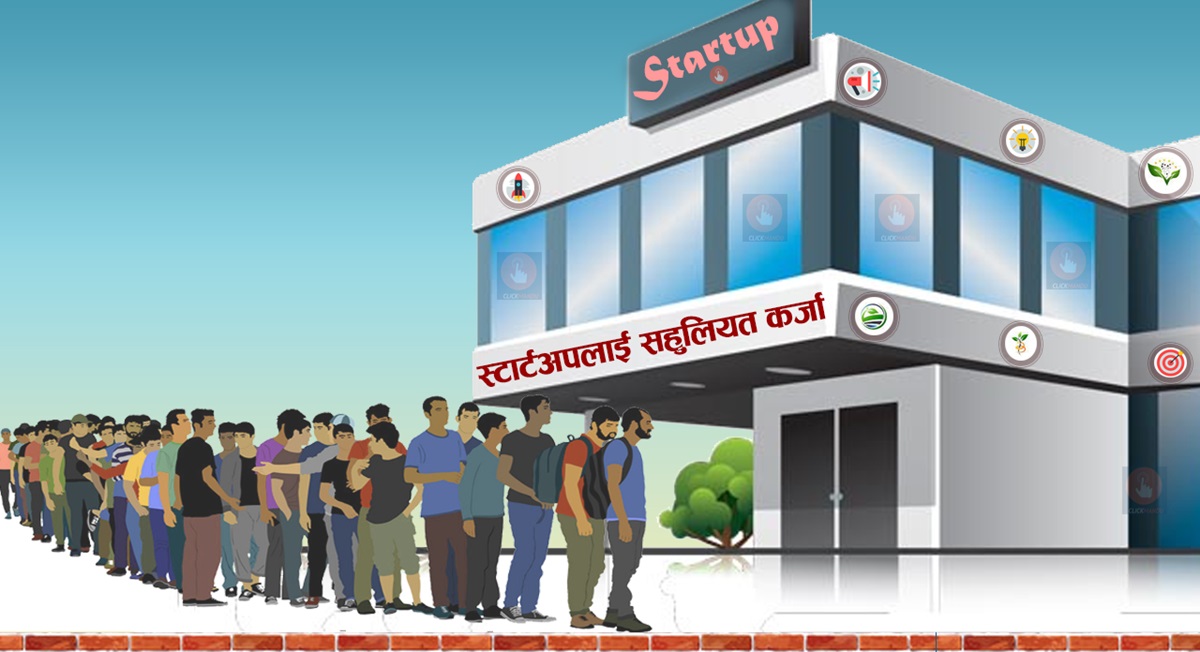Kathmandu: The Government of Nepal funded 600 entrepreneurial projects in the last fiscal year under its growing Startup Enterprise Loan Programme.
This funding serves as a part of a broader push to nurture innovation, youth employment, and small-scale industries across the country.
According to officials at the Industrial Enterprise Development Institute (IEDI), a total of 661 projects had been shortlisted for concessional loans under the Startup Enterprise Loan Operating Procedure 2023. However, after site inspections and document verification, only 600 projects qualified for disbursement, receiving a total of Rs 886.6 million (approximately US$6.7 million) in low-interest financing.
IEDI Executive Director Umesh Gupta said the remaining 61 projects were rejected due to non-compliance with the proposal guidelines, failure to submit required documentation, or blacklisting issues. The loans were channeled through Rastriya Banijya Bank, a major state-owned commercial bank.
“Based on required documentation and field studies, we approved startup loans for 600 projects nationwide,” Gupta told reporters. “This marks a significant expansion compared to the previous year.”
The government’s budget allocation for startup loans increased fourfold in a single year—from Rs 250 million in fiscal year 2023/24 to Rs 1 billion in 2024/25. The earlier budget had supported just 165 projects, highlighting the exponential growth in both funding and demand.
Gupta confirmed that more than Rs 18 million from last year’s loans have already been voluntarily repaid by borrowers, even though repayments were not required during the first year.
Nepal’s startup loan scheme offers loans of up to Rs 2.5 million per individual at a highly concessional 3 percent interest rate. The disbursement schedule varies: loans under Rs 500,000 are released in a single installment, those up to Rs 1.5 million in two, and higher amounts in three installments. Entrepreneurs must contact designated bank branches within 45 days of project approval to initiate the disbursal process.
Out of 1,314 proposals submitted last year, 1,073 were initially shortlisted, and 661 were selected through a competitive presentation process. The approved projects predominantly fall within agriculture and livestock, apparel and handicrafts, furniture, homestays, and light manufacturing industries.
The eligibility criteria, as outlined by the operating procedure, are strict: businesses must be legally registered and not more than seven years old. Their paid-up capital must be between Rs 200,000 and Rs 1 million, and their annual turnover must not exceed Rs 20 million. Enterprises must not have fixed assets (excluding land and buildings) above Rs 20 million.
Excluded from the programme are companies involved in imports and resale of foreign goods, blacklisted firms, holding and investment companies, and any entity not registered under Nepali law.
The government has earmarked slightly more than Rs 1 billion for the programme in the upcoming fiscal year 2025/26, signaling its intent to institutionalize the initiative.
The programme covers 16 priority sectors, including agriculture, forestry, tourism, information technology, education, health services, clean energy, climate mitigation, disaster management, and waste management. It aims to address not only economic needs but also social and environmental challenges through targeted entrepreneurial support.
Although the startup loan initiative was introduced in the previous fiscal year’s national budget, implementation had been delayed. The Ministry of Industry, Commerce and Supplies brought the programme into full operation only after revising the operational guidelines earlier this year.
As Nepal grapples with high youth unemployment, sluggish industrial growth, and a large informal economy, the startup loan program is being seen as a policy tool to stimulate grassroots entrepreneurship and promote sustainable economic development.
On 16 July, the 38th anniversary of Industrial Area Management Limited was celebrated, underscoring the country’s broader commitment to industrial revitalization.



Comment Here